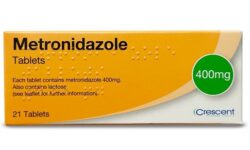Benefits of Electronic Medical Records
In today’s technologically driven world, the healthcare industry is constantly evolving to adapt to the ever-changing landscape of patient care. One such development that has revolutionized the way healthcare professionals operate is the implementation of electronic health records (EHR). With improved access to patient information, healthcare providers can now make more informed decisions and provide better quality care. Additionally, the use of EHR has streamlined the process of documentation, ensuring that information is recorded efficiently and accurately. Furthermore, the enhanced collaboration and communication facilitated by EHR systems have greatly improved patient outcomes. Lastly, the adoption of EHR has also bolstered data security and privacy, safeguarding confidential patient information. Stay tuned as we delve further into these remarkable advancements in healthcare technology and their impact on patient care.
Improved Access To Patient Information
Electronic Medical Records (EMRs) have revolutionized the way healthcare providers store and access patient information. Gone are the days of flipping through a stack of paper files; now, healthcare professionals can simply log into a secure electronic system and retrieve the information they need with just a few clicks. This improved access to patient information has numerous benefits for both healthcare providers and patients alike.
Firstly, EMRs allow healthcare providers to access patient information from anywhere at any time. This means that if a patient is admitted to a different hospital or if their primary care physician is unavailable, other healthcare professionals can still access their medical records and provide the necessary care. This seamless flow of information ensures continuity of care and reduces the risk of medical errors.
Secondly, the use of EMRs enables healthcare providers to quickly retrieve specific pieces of patient information. With the ability to search for keywords or diagnoses, healthcare professionals can save valuable time and provide more efficient care. This streamlined access to data improves the overall patient experience by reducing wait times and increasing the accuracy of diagnoses.
Furthermore, EMRs enhance the coordination of care among different healthcare providers. In a traditional paper-based system, transferring patient information between hospitals or specialists could be a cumbersome process prone to errors or delays. With EMRs, however, healthcare professionals can easily share and access patient information, allowing for better coordination and collaboration in delivering comprehensive care. This improved communication between healthcare teams ultimately leads to better patient outcomes.
In conclusion, the adoption of electronic medical records has significantly improved access to patient information. The ability to access these records remotely, search for specific information, and easily share them among healthcare providers has revolutionized the healthcare industry. These advancements ultimately benefit patients by ensuring continuity of care, reducing errors, and improving overall outcomes. The benefits of electronic medical records are undeniable, and their continued implementation will undoubtedly contribute to the advancement of healthcare.
Efficient And Accurate Documentation
Efficient and Accurate Documentation is a crucial aspect of any medical practice. With the advent of electronic medical records (EMRs), healthcare providers have seen a significant improvement in the way they document patient information and medical data. EMRs have revolutionized the traditional paper-based method of documentation, offering numerous benefits to both healthcare professionals and patients.
One of the key benefits of EMRs is the ability to streamline the documentation process. With electronic records, healthcare providers can easily record and access patient information in a more efficient manner. Gone are the days of flipping through endless stacks of papers to find a specific medical record or prescription. EMRs allow for quick searches and instant retrieval of information, saving both time and effort.
Another advantage of EMRs is the accuracy they offer in documentation. Manual documentation is prone to errors, such as illegible handwriting and missing information. However, with electronic records, these issues are largely eliminated. The use of standardized templates and digital input methods ensures that all necessary details are entered accurately. This improves the overall quality and reliability of medical documentation, reducing the risk of medical errors and improving patient care.
EMRs also facilitate better coordination and collaboration among healthcare professionals. With electronic documentation, multiple healthcare providers can access and update patient records simultaneously. This promotes seamless communication, allowing for efficient care coordination and improved patient outcomes. Moreover, EMRs enable instant sharing of information between different healthcare facilities, eliminating the need for cumbersome paper-based transfers.
In terms of data security and privacy, EMRs offer enhanced protection compared to traditional paper records. Physical documents can be lost, damaged, or accessed by unauthorized individuals, posing significant risks to patient confidentiality. EMRs, on the other hand, ensure secure storage and controlled access to sensitive medical information. Robust security measures, such as encryption and user authentication, safeguard patient data from breaches and unauthorized use.
In conclusion, the shift towards electronic medical records has greatly improved efficiency and accuracy in medical documentation. EMRs facilitate quick and easy access to patient information, minimize errors, enhance collaboration between healthcare professionals, and provide better data security and privacy. These advancements ultimately contribute to a more effective healthcare system and improved patient care.
Enhanced Collaboration And Communication
Electronic Medical Records (EMRs) have revolutionized the healthcare industry by greatly enhancing collaboration and communication among healthcare providers. In the past, medical professionals relied on paper records, which were often difficult to access and share. With the implementation of EMRs, healthcare practitioners can now easily collaborate on patient care, thereby improving the overall quality and efficiency of healthcare delivery.
The benefits of enhanced collaboration and communication through EMRs are numerous. Firstly, EMRs allow for real-time access to patient information, which means that healthcare providers can quickly retrieve and review patient records. This eliminates the time-consuming process of waiting for paper records to be delivered and allows for prompt decision-making in critical situations.
Secondly, EMRs facilitate seamless communication between healthcare professionals, regardless of their physical locations. With the ability to access patient information electronically, healthcare providers can easily share important medical data, such as test results, medications, and treatment plans. This streamlines the communication process and ensures that all relevant parties are up to date on the patient’s condition.
- Improved Access To Patient Information
- Efficient And Accurate Documentation
- Enhanced Collaboration And Communication
- Better Data Security And Privacy
Furthermore, EMRs support interdisciplinary collaboration, allowing different healthcare providers, such as doctors, nurses, and pharmacists, to work together more effectively. By having a centralized electronic record, healthcare teams can easily coordinate their efforts and share their expertise, resulting in better patient outcomes.
In addition to improved collaboration, EMRs also enhance patient communication. Gone are the days of deciphering illegible handwriting and dealing with lost paper documents. EMRs provide a clear and organized platform for healthcare providers to document and share information with their patients. This enables patients to have a better understanding of their healthcare journey and actively participate in their own care decisions.
| Benefits of Enhanced Collaboration and Communication through EMRs: |
|---|
| Real-time access to patient information |
| Seamless communication between healthcare professionals |
| Support for interdisciplinary collaboration |
| Improved patient communication and engagement |
In conclusion, the integration of electronic medical records has significantly enhanced collaboration and communication in the healthcare industry. The benefits of real-time access to patient information, seamless communication between healthcare professionals, support for interdisciplinary collaboration, and improved patient communication and engagement cannot be overstated. By embracing EMRs, healthcare providers are empowered to deliver more efficient, coordinated, and patient-centered care.
Better Data Security And Privacy
Electronic Medical Records (EMRs) have revolutionized the healthcare industry by streamlining processes, improving patient care, and enhancing data security and privacy. With the advancement of technology, the traditional paper-based medical records are slowly being replaced by electronic systems. In this blog post, we will explore the benefits of EMRs in providing better data security and privacy.
One of the significant advantages of EMRs is the improved security and privacy of patient data. With electronic medical records, healthcare providers can ensure the confidentiality and integrity of sensitive information. EMRs offer various security measures, such as user authentication, access controls, and encryption, which protect patient data from unauthorized access and breaches. This prevents the risk of identity theft, fraud, and unauthorized disclosures, ensuring patients’ privacy is maintained.
In addition to data security, EMRs also offer enhanced privacy features. Traditional paper-based medical records can easily be misplaced or accessed by unauthorized individuals. EMRs, on the other hand, provide strict access controls, allowing healthcare professionals to limit the accessibility of patient records. This ensures that only authorized personnel can view and make changes to the medical information, reducing the chances of privacy breaches and unauthorized use of patient data.
| Benefits of Electronic Medical Records for Data Security and Privacy: | |
|---|---|
| 1. Enhanced Security: | EMRs provide advanced security measures such as authentication, access controls, and encryption to protect patient data from unauthorized access. |
| 2. Strict Access Controls: | EMRs allow healthcare professionals to restrict access to patient records, ensuring that only authorized personnel can view and make changes to the information. |
| 3. Reduced Risk of Privacy Breaches: | By replacing paper-based records, EMRs minimize the risk of privacy breaches caused by misplaced or easily accessible medical documents. |
With EMRs, healthcare organizations can also implement audit trails, which record every access and modification made to patient records. This provides a transparent log of activities, enabling detection and investigation of any potential security breaches. The ability to track and monitor access to patient data adds an extra layer of security and accountability.
Furthermore, EMRs allow for easier data backup and recovery. In the case of disasters or system failures, electronic medical records can be securely stored in off-site servers or cloud platforms. This ensures that patient data remains safe and retrievable, mitigating the risks associated with data loss.
In conclusion, the adoption of Electronic Medical Records brings numerous benefits, including improved data security and privacy. EMRs offer enhanced security measures, strict access controls, reduced risk of privacy breaches, and the ability to implement audit trails. By replacing traditional paper-based records, healthcare providers can safeguard patient data and ensure the confidentiality and privacy of medical information.
Frequently Asked Questions
How does improved access to patient information benefit healthcare providers?
Improved access to patient information allows healthcare providers to have instant access to important medical history, lab results, and treatment plans. This enables them to make more informed decisions, provide better patient care, and ultimately improve patient outcomes.
How does efficient and accurate documentation benefit healthcare providers?
Efficient and accurate documentation reduces the risk of errors and eliminates the need for manual paperwork. This not only saves time and resources but also ensures that patient records are complete, up-to-date, and easily accessible to healthcare providers when needed.
How does enhanced collaboration and communication benefit healthcare providers?
Enhanced collaboration and communication enable healthcare providers to work together more effectively as a team. It allows for the sharing of information, ideas, and treatment plans in real-time, leading to better coordinated care and improved patient outcomes.
Why is data security and privacy important in healthcare?
Data security and privacy are crucial in healthcare to protect patient information from unauthorized access, loss, or misuse. It ensures that confidential medical records remain secure, maintains patient trust, and helps healthcare providers comply with legal and regulatory requirements.
How can technology help improve data security and privacy in healthcare?
Technology can help improve data security and privacy in healthcare through measures such as encryption, access controls, and data backups. Implementing secure electronic health record systems and employing cybersecurity protocols can help safeguard patient information from cyber threats.
What are some potential challenges in implementing technology in healthcare?
Some potential challenges in implementing technology in healthcare include resistance to change from healthcare professionals, interoperability issues between different systems, the cost of implementation and maintenance, and ensuring proper training and support for healthcare staff.
What are the potential benefits of overcoming these challenges and embracing technology in healthcare?
By overcoming these challenges and embracing technology in healthcare, healthcare providers can benefit from improved efficiency, accuracy, and accessibility of patient information. It can lead to better diagnosis and treatment decisions, reduced healthcare costs, enhanced patient satisfaction, and ultimately improved overall healthcare outcomes.



